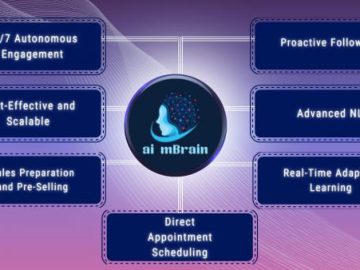In today’s digital landscape, mastering the art of search engine optimization (SEO) is crucial for businesses to succeed online. Keywords, often referred to as the backbone of SEO, play a vital role in driving organic traffic and improving the visibility of websites. This article will explore the significance of keywords, how to use them effectively, and why partnering with experts like Digital Panda, a leading SEO freelancer from Melbourne, can help businesses generate higher revenue from organic searches across Australia.
Understanding the Importance of Keywords in SEO
Keywords are the words or phrases that people type into search engines when they’re looking for information, products, or services. They serve as a bridge between what people are searching for and the content that websites provide. Effective SEO strategies hinge on selecting and using the right keywords, which can determine whether a website appears on the first page of search results or gets lost among competitors.
Using keywords effectively involves understanding user intent, which is the goal behind a user’s search. Keywords are divided into three categories based on intent: informational, navigational, and transactional. Knowing which type of keywords your target audience is using can help tailor your content to better meet their needs, ultimately driving more relevant traffic to your website.
Types of Keywords in SEO
To create an effective SEO strategy, it’s important to understand the different types of keywords and how they fit into your marketing goals.
1. Short-Tail Keywords
Short-tail keywords are typically one to two words in length, such as “SEO strategies” or “digital marketing.” These keywords tend to have high search volumes but are also very competitive. While they can attract a large audience, they might not always bring in targeted traffic. Incorporating these keywords helps establish general relevance but should be complemented by more specific keywords to improve conversions.
2. Long-Tail Keywords
Long-tail keywords consist of three or more words and are more specific, such as “how to improve SEO strategies for small businesses.” These keywords generally have lower search volumes but are less competitive and have higher conversion rates. By targeting long-tail keywords, businesses can capture users who are further along in the buying process and looking for specific information or products.
3. LSI (Latent Semantic Indexing) Keywords
LSI keywords are conceptually related terms that help search engines understand the context of your content. They’re not necessarily synonyms but words that are often used in conjunction with your primary keywords. For instance, if your primary keyword is “SEO,” relevant LSI keywords might include “search engine optimization,” “organic traffic,” or “keyword ranking.” Using LSI keywords enhances your content’s relevance and helps search engines determine its depth.
Keyword Research: The Foundation of Effective SEO
Keyword research is the process of finding and analyzing keywords that your target audience is using. It lays the foundation for your entire SEO strategy, ensuring that your content aligns with user queries and delivers what people are searching for.
To conduct effective keyword research, it’s essential to use tools such as Google Keyword Planner, Ahrefs, or SEMrush. These tools help identify popular keywords, assess competition levels, and find long-tail keyword opportunities. Understanding the search volume and difficulty of each keyword allows you to select the most suitable keywords to target.
Partnering with experts like Digital Panda, an SEO freelancer from Melbourne, can make a significant difference in your keyword research process. With years of experience helping businesses generate higher revenue from organic searches, Digital Panda uses advanced tools and techniques to discover the most effective keywords for your industry.
Strategic Keyword Placement in SEO
Once you’ve identified the right keywords, using them strategically throughout your website is crucial. Here’s where to incorporate keywords for maximum impact:
1. Title Tags and Meta Descriptions
Title tags and meta descriptions are often the first thing users see in search engine results. Including primary keywords here helps improve click-through rates and lets users know that your page is relevant to their search.
2. Headings and Subheadings
Including keywords in your headings (H1, H2, etc.) signals to search engines that your content addresses specific topics. It also makes your content easier to navigate for readers, improving their overall experience.
3. Body Content
While keywords should be naturally integrated into the body of your content, it’s important to avoid “keyword stuffing”—the practice of overusing keywords in an unnatural way. Keyword stuffing can lead to penalties from search engines. Instead, focus on creating valuable, informative content where keywords appear naturally.
4. URLs and Alt Text
Incorporating keywords into URLs helps both users and search engines understand what a page is about. Additionally, using keywords in image alt text improves your chances of appearing in image searches, contributing to increased traffic.
Avoiding Common Keyword Mistakes
While keywords are crucial for effective SEO, certain mistakes can hinder your efforts:
- Keyword Stuffing: As mentioned earlier, overloading your content with keywords can lead to a poor user experience and penalties from search engines. Aim for natural inclusion rather than forcing keywords into every sentence.
- Ignoring Search Intent: Choosing keywords that don’t align with user intent means you may attract traffic that’s unlikely to convert. Always consider the intent behind keywords and whether they match the type of content you’re providing.
- Neglecting Long-Tail Keywords: Many businesses focus solely on high-traffic keywords, neglecting long-tail keywords that can drive more qualified traffic. Incorporate a mix of both to create a balanced SEO strategy.
The Role of Digital Panda in Crafting Effective Keyword Strategies
An effective SEO strategy goes beyond simply choosing keywords—it requires a comprehensive understanding of keyword relevance, user intent, and search trends. This is where the expertise of a professional like Digital Panda comes into play. As a leading SEO freelancer based in Melbourne, Digital Panda helps businesses across Australia generate higher revenue from organic searches by crafting customized keyword strategies tailored to their industry.
Whether it’s identifying high-converting long-tail keywords or optimizing on-page elements for better visibility, Digital Panda leverages years of experience and advanced SEO tools to ensure that your website ranks well on search engines. Working with a professional can save time, maximize results, and ultimately help your business achieve higher organic visibility.
Conclusion
Keywords are at the core of any effective SEO strategy. By conducting thorough keyword research, strategically placing keywords throughout your content, and avoiding common pitfalls, businesses can improve their search engine rankings and drive more targeted traffic. Partnering with experts like Digital Panda, a Melbourne-based SEO freelancer, can further enhance your keyword strategy and help your business generate higher revenue from organic searches. With the right approach, keywords can be the key to unlocking your website’s true potential in the search engine results pages.
Read More From Techbullion





